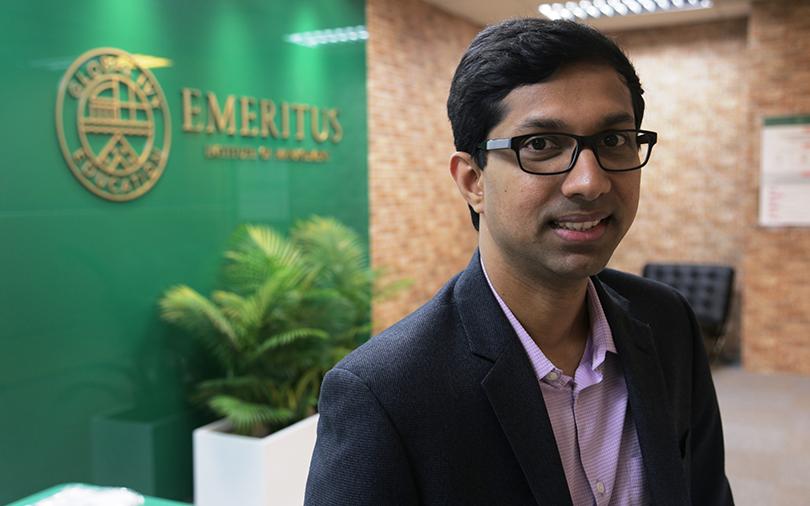Emeritus Institute of Management, which offers executive education programmes, globally, has outlined its strategies to drive growth in the booming education technology space.
“We are setting up our new analytics centre in Mumbai, creating new courses and entering new international markets,†Emeritus executive director Ashwin Damera told VCCircle.
The company, which is owned by Eruditus Learning Solutions Pte. Ltd, had recently raised $8.2 million from Bertelsmann India.
The analytics hub in Mumbai will help the company improve its curriculum by using adaptive learning, based on artificial intelligence and predictive analytics.
“More than 6,000 students go through our courses and, on an average, they spend five hours a week, eight weeks per course, or 40 hours of data per student, which is about 2.5 lakh hours of learning data. The job of the learning analytics centre is to get a sense from this, and start improving the courses so that the completion rate can be improved from the current 85% to 95%,†Damera added.
The company has invested $1 million so far to set up the centre, and has hired 20 people, who will work with Emeritus’ global learning teams predominantly based out of Singapore and Boston.
Expansion
India is the biggest market for Emeritus, followed by the US, Singapore and South-East Asia, and West Asia. It also has plans to enter other global markets, including China and South America, especially Brazil.
The company is also considering acquisitions and inorganic bets in these markets, Damera informed.
It has already got into a partnership with The Bridge Education Group in Chile and Argentina to offer Spanish courses. In addition, it is exploring partnerships in Brazil and is expected to make some announcements within the next three to six months.
It is also looking at inorganic growth opportunities in China. “China is complicated because it is not clear if Emeritus can do it in an organic way. So, we might enter China through an acquisition or a joint venture. We are already in talks with a couple of players there,†Damera added.
New curriculum
Emeritus offers 15 management education courses in collaboration with three universities – MIT Sloan, Columbia Business School, Tuck At Dartmouth. It is working on adding 15 more courses over the next 12 months.
“We will come up with new courses in data science, artificial intelligence, machine learning, robotics and autonomous vehicles. While many courses will be created with our existing partners, we will also be announcing partnerships with two more institutes soon.â€
Traction, revenues
Emeritus offers higher education programmes to middle managers, while its parent firm Eruditus caters to a more premium segment, offering CXO-level programmes.
In the past one year, Eruditus and Emeritus have serviced over 6,500 students. Online short course for about six weeks costs Rs 50,000, and a one-year diploma course may go up to Rs 7 lakh, depending on the subject and level of expertise. The CXO level programmes cost about Rs 20-25 lakh.
About one-third of our enrolments are coming from enterprises. One of our largest partnerships has been with Axis Bank, which had enrolled about 1,400 employees for Emeritus courses. “Besides, we have offered courses to students from Future Group, Genpact, Wipro, Infosys, Accenture and Maruti, among others,†he said.
In 2016-17, the company had achieved $14.5 million in revenues, and expects to touch the $40 million revenue mark this fiscal year.
In 2016, e-learning in higher education, globally, was estimated to be a $17 billion market, which is 34% of the $51.5 billion ed-tech market. Asia commands 20% of the $17 billion higher education market, according to a Docebo study.
India’s population in the age-group of 15-34 has been steadily increasing – from 353 million in 2001 to 430 million in 2011 – and is estimated to reach 464 million by 2021.
Given that only a small section of the youth make it to top universities, Damera believes there is huge potential for higher education and reskilling courses. “With such a huge market to tap, our goal is to become a billion-dollar company in the next five years.â€







